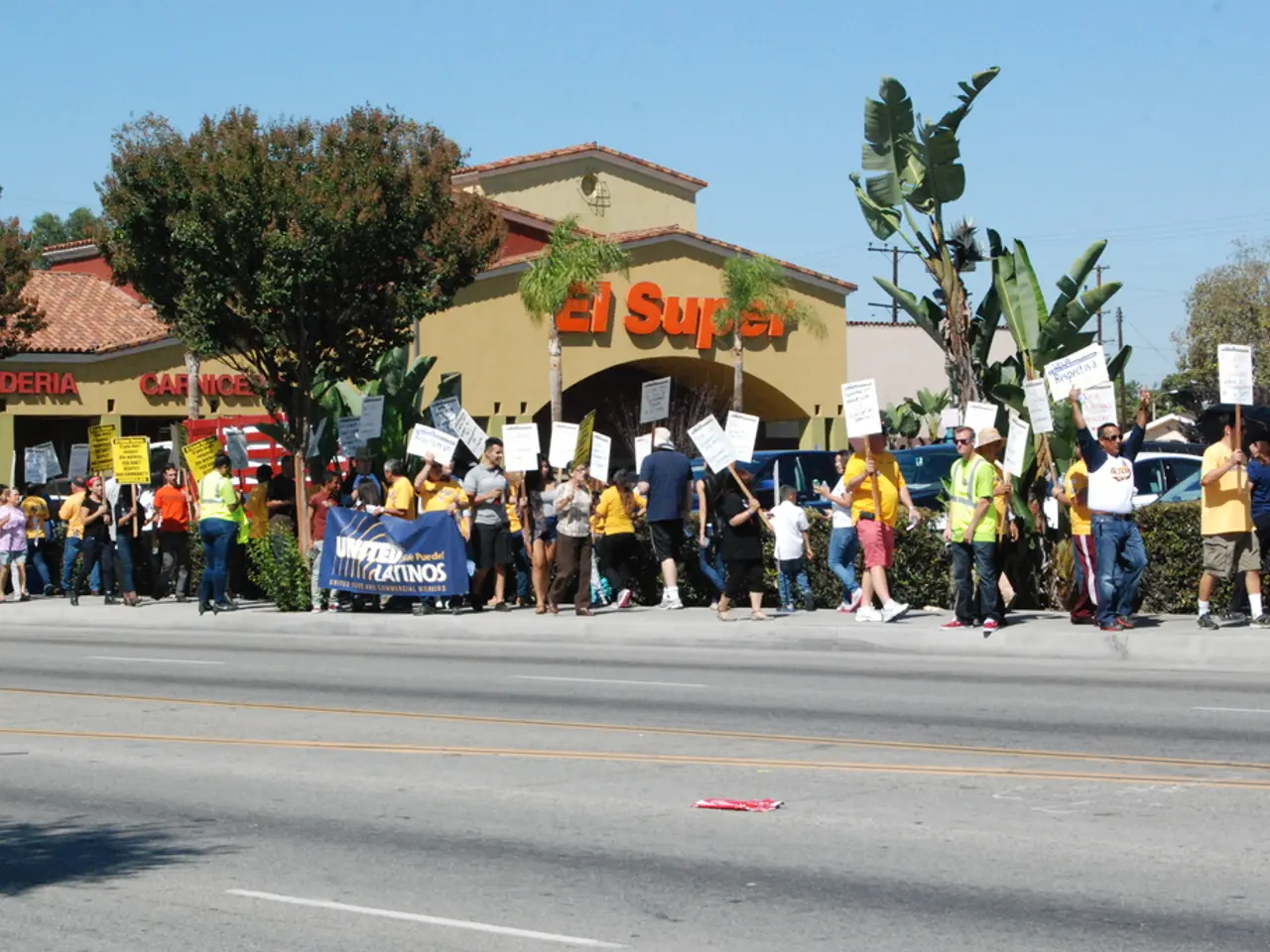Initial reactions in Dortmund's parliamentary election: CDU, the Left, and AfD parties have garnered attention
In the vibrant city of Dortmund, Germany, the 2025 federal election has left a significant impact on the local political landscape. The Christian Democratic Union (CDU), led by Friedrich Merz, emerged as the strongest party nationally, but with diminished support compared to previous elections.
The Social Democratic Party (SPD), led by Lars Klingbeil, remains a major contender and entered coalition negotiations with the CDU. However, the SPD lost the status of the biggest party nationally to the CDU for the first time.
The far-right Alternative for Germany (AfD) saw a historic shift in voter preferences, reaching record levels in national surveys. This surge in popularity could influence electoral dynamics locally, including in cities like Dortmund.
The Greens' performance in Dortmund was not explicitly mentioned, but their national performance likely played a smaller role given the emphasis on the CDU, SPD, and AfD in coalition talks and polling data.
The AfD is celebrating their nationwide result of 20%, seeing it as a springboard for the local election, potentially getting 10 to 12 people into the Dortmund council. The direct candidate for Dortmund II, Michael Depenbrock, assures that it is a realistic option to defeat the SPD in the constituencies, but notes that the CDU members must still wait for certainty.
The CDU's Sarah Beckhoff emphasizes that the party has proven to be the "only democratic way to change something in this country." The Left's direct candidate for the Dortmund II constituency, Sonja Lemke, comments on the result being a testament to the hard work of the campaigners.
The Greens party is only slightly happy with their result but are happy for the success of the Left party. The SPD's Jens Peick, leader and Bundestag member, is deeply affected by the result and expresses concern about being behind a far-right party like the AfD. The SPD remains the party most involved in social movements in Dortmund, with Peick claiming they take this role seriously.
The Left party has achieved a surprising result of 9%, causing a mix of emotions including schadenfreude among some present. The party is jubilant about their result, attributing it to addressing the issues that move people like high prices and high rents.
The FDP's result is close, with ARD results showing 4.9% and ZDF results showing 5%, predicting a nail-biter for the Free Democrats on election night. The BSW (Bündnis Sarah Wagenknecht) is five percent behind and has to worry about getting into the Bundestag.
Dortmund CDU chairman Sascha Mader announces that the "traffic light coalition" has "burst like a soap bubble," which he sees as a good sign for Germany. Mader sees the CDU/CSU as having a mandate for forming the government and believes the Left party deserves "sporting respect" for turning the polls.
The AfD's faction leader in the Dortmund city council, Heiner Garbe, sees the first projection as a "beautiful confirmation of our success." The Greens party's result in Dortmund is 13.5% in the ARD projection, which is 1.2 percentage points lower than three years ago.
The SPD party, led by Jens Peick, has received its worst result in Dortmund and is now the third-strongest party. Mader criticizes the SPD for being "shredded" by voters and emphasizes the need for the CDU to focus on topics like the economy and migration.
Reporters Solveig Wright, Lukas Pazzini, Xenia Libert, Erik Latos, Peter Krause, Sergii Kucherov, Helmut Sommer, Leopold Achilles, Karsten Wickern, and Alexander Völkel report from the town hall, providing a comprehensive account of the election's impact on Dortmund.
- What are the implications of the CDU's increased support but diminished national majority in the 2025 federal election for the local political landscape in Dortmund, Germany?
- How might the surging popularity of the far-right Alternative for Germany (AfD) impact electoral dynamics in cities like Dortmund, and what could be the potential outcome for the Dortmund council?
- What does the 9% vote share achieved by the Left party in Dortmund signify, and how has this result affected the political landscape in the city?
- Given the CDU's emphasis on topics like economy and migration, what areas might they focus on to address the concerns of Dortmund voters who have shredded the SPD?
- With the Greens party achieving a result of 13.5% in Dortmund, how does this compare to their performance three years ago, and what could potentially influence their future political strategy in the city?







